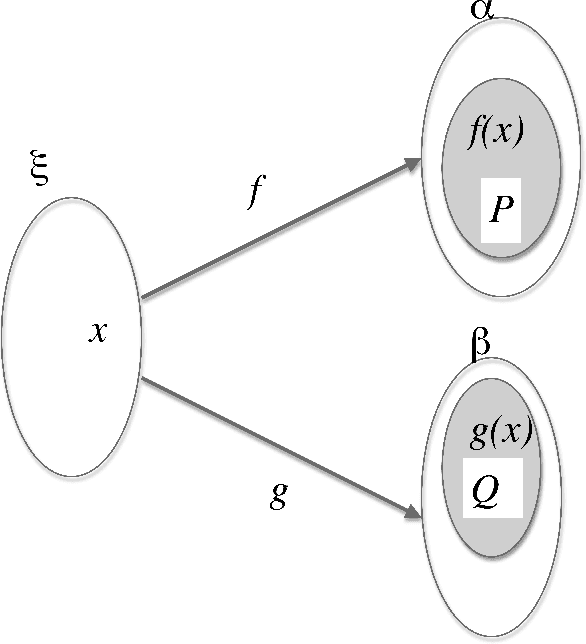Bruno Mery
LaBRI
Plurals: individuals and sets in a richly typed semantics
Jan 03, 2014
Abstract:We developed a type-theoretical framework for natural lan- guage semantics that, in addition to the usual Montagovian treatment of compositional semantics, includes a treatment of some phenomena of lex- ical semantic: coercions, meaning, transfers, (in)felicitous co-predication. In this setting we see how the various readings of plurals (collective, dis- tributive, coverings,...) can be modelled.
Semantic Types, Lexical Sorts and Classifiers
Dec 11, 2013Abstract:We propose a cognitively and linguistically motivated set of sorts for lexical semantics in a compositional setting: the classifiers in languages that do have such pronouns. These sorts are needed to include lexical considerations in a semantical analyser such as Boxer or Grail. Indeed, all proposed lexical extensions of usual Montague semantics to model restriction of selection, felicitous and infelicitous copredication require a rich and refined type system whose base types are the lexical sorts, the basis of the many-sorted logic in which semantical representations of sentences are stated. However, none of those approaches define precisely the actual base types or sorts to be used in the lexicon. In this article, we shall discuss some of the options commonly adopted by researchers in formal lexical semantics, and defend the view that classifiers in the languages which have such pronouns are an appealing solution, both linguistically and cognitively motivated.
Advances in the Logical Representation of Lexical Semantics
Sep 04, 2013
Abstract:The integration of lexical semantics and pragmatics in the analysis of the meaning of natural lan- guage has prompted changes to the global framework derived from Montague. In those works, the original lexicon, in which words were assigned an atomic type of a single-sorted logic, has been re- placed by a set of many-facetted lexical items that can compose their meaning with salient contextual properties using a rich typing system as a guide. Having related our proposal for such an expanded framework \LambdaTYn, we present some recent advances in the logical formalisms associated, including constraints on lexical transformations and polymorphic quantifiers, and ongoing discussions and research on the granularity of the type system and the limits of transitivity.
 Add to Chrome
Add to Chrome Add to Firefox
Add to Firefox Add to Edge
Add to Edge